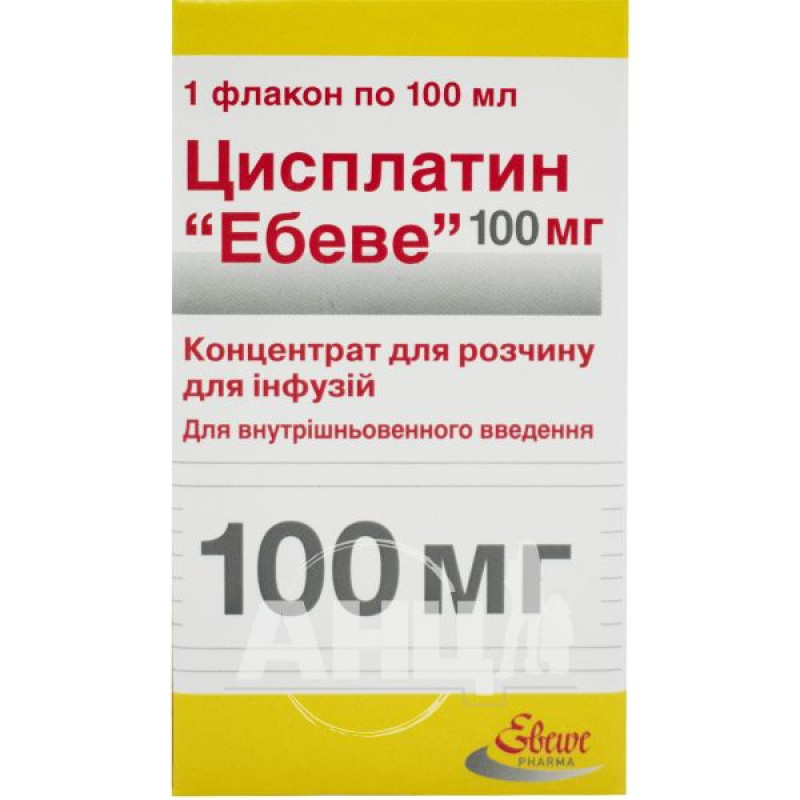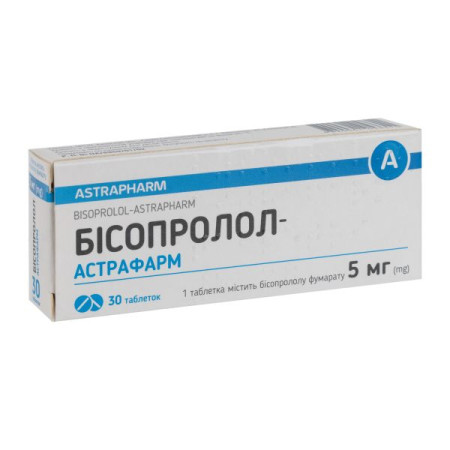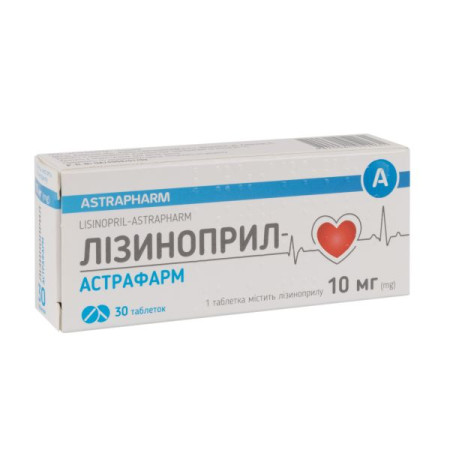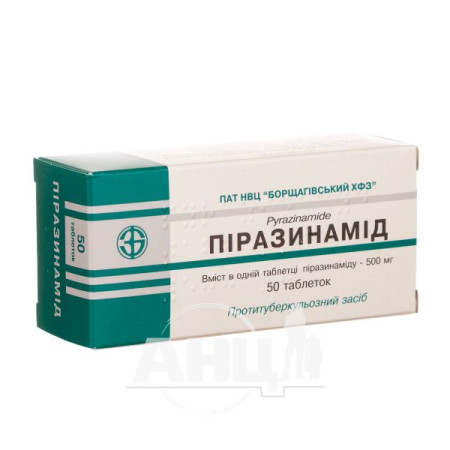Cisplatin Ebeve concentrate for solution for infusion 100 mg bottle 100 ml No. 1

Cisplatin Ebewe is an antineoplastic agent for the treatment of:
advanced or metastatic testicular cancer; advanced or metastatic ovarian cancer; advanced or metastatic bladder cancer; advanced or metastatic squamous cell carcinoma of the head and neck; advanced or metastatic non-small cell lung cancer; advanced or metastatic small cell lung cancer; cervical tumors, used in combination with radiation therapy.Warehouse
active substance: cisplatin; 1 ml of concentrate for solution for infusion contains 0.5 mg or 1 mg of cisplatin; excipients: sodium chloride, diluted hydrochloric acid, water for injections.Contraindication
History of hypersensitivity to cisplatin or to other platinum-containing drugs or to any component of the drug.
Renal impairment (creatinine clearance < 60 ml/min).
Dehydration of the body (pre- and post-hydration is necessary to prevent the development of serious kidney dysfunction).
Method of application
For intravenous infusion
The solution for infusion can be administered only by intravenous drip infusion for 6–8 hours. For 2–12 hours before the administration of the drug and for at least 6 hours after the end of the cisplatin infusion, adequate hydration of the body should be carried out, which is necessary to maintain sufficient diuresis during and after the administration of cisplatin. Hydration is carried out by intravenous infusion of one of the following solutions: 0.9% sodium chloride solution or a mixture of 0.9% sodium chloride solution and 5% glucose solution in a ratio of 1: 1.
Hydration before cisplatin treatment: intravenous infusion of one of the indicated solutions at a rate of 100–200 ml/h for 6–12 hours with a total volume of at least 1 liter.
Post-dose hydration: intravenous infusion of another 2 L of one of the above solutions at a rate of 100–200 mL/h for 6–12 hours. If urine output is less than 100–200 mL/h after hydration, forced diuresis may be necessary. To do this, the patient should be given 37.5 mg of mannitol as a 10% solution intravenously (375 mL of 10% mannitol solution) or diuretics if renal function is normal. Mannitol or diuretics should also be given if the cisplatin dose exceeds 60 mg/m2 of body surface area. The patient should be encouraged to drink plenty of fluids for 24 hours after cisplatin infusion to ensure adequate urine output.
Application features
Treatment with cisplatin should be carried out under the supervision of a qualified oncologist.
Cisplatin is characterized by cumulative ototoxic, nephrotoxic, and neurotoxic effects. Its toxicity may be enhanced when combined with other drugs that have toxic effects on these organs and systems.
Pregnant women
Cisplatin should not be used in pregnant women unless there are vital indications for it.
Children
In children, before starting the next course of treatment, it should be checked that the main indicators (serum creatinine, urea, leukocytes, platelets, audiogram) have returned to the appropriate age norms.
Drivers
Patients who experience such adverse reactions (e.g. drowsiness or vomiting) should not drive or operate machinery.
Overdose
Acute overdose of cisplatin may result in renal failure, hepatic failure, deafness, ophthalmotoxicity (including retinal detachment), significant bone marrow depression, intractable nausea, vomiting and/or neuritis. Overdose may be fatal.
Side effects
On the part of the immune system: Immunosuppression, wheezing are possible.
Endocrine system: Increased serum amylase levels may occur. Inappropriate secretion of antidiuretic hormone has been reported in isolated cases.
Storage conditions
Store in the original packaging at a temperature not exceeding 25 °C. Do not refrigerate or freeze. Keep out of the reach of children.
There are no reviews for this product.
There are no reviews for this product, be the first to leave your review.
No questions about this product, be the first and ask your question.






